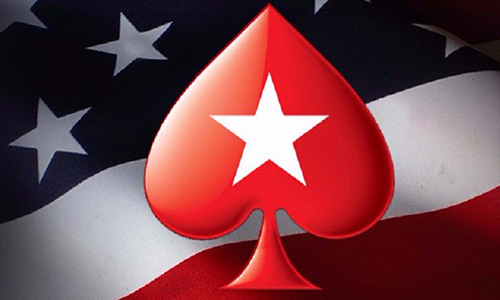US District Judge Tosses Appeal, PokerStars Wins in Illinois Gambling Case
Online poker giant PokerStars and its parent company, Canada’s Amaya Group, scored a significant legal victory in Illinois in recent days when a US District Judge reaffirmed a pair of lower-court rulings and tossed out a joint appeal brought by two Illinois-based plaintiffs.
 Back in 2014, PokerStars had triumphed in the initial cases of Kelly Sonnenberg, et al., v. Amaya Group Holdings (IOM) Limited (formerly known as Oldford Group, Ltd.), et al., and Judy Fahrner, et al., v. TILTWARE, LLC, et al.. The cases were a matching pair of long-arm class-action cases brought against PokerStars and Full Tilt, which now also is owned and operated by Amaya. Attorneys for Sonnenberg, Fahrner and two sons of theirs had sought to claw back their losses using the Illinois Loss Recovery Act (LRA), a 19th-century anti-gambling statute still on the books that allowed third parties to sue to recover gambling losses.
Back in 2014, PokerStars had triumphed in the initial cases of Kelly Sonnenberg, et al., v. Amaya Group Holdings (IOM) Limited (formerly known as Oldford Group, Ltd.), et al., and Judy Fahrner, et al., v. TILTWARE, LLC, et al.. The cases were a matching pair of long-arm class-action cases brought against PokerStars and Full Tilt, which now also is owned and operated by Amaya. Attorneys for Sonnenberg, Fahrner and two sons of theirs had sought to claw back their losses using the Illinois Loss Recovery Act (LRA), a 19th-century anti-gambling statute still on the books that allowed third parties to sue to recover gambling losses.
The case bears some similarities to the insensate $871 million summary judgment recently granted to the Commonwealth of Kentucky against Amaya and PokerStars, regarding the online-poker giant’s pre-UIGEA services there. In the Illinois cases, however, the plaintiffs’s sons (the original poker players) had previously been determined to be ineligible, having waited too long to launch the action, and while their mothers’ claim was indeed ruled to be timely, and thus eligible to be heard, the latest appellate ruling affirms that the old Loss Recovery Act is not viewed by the judiciary as a means to freeroll the world regarding willful gambling losses.
A three-judge panel tossed the joint appeal a week ago, and Seventh Circuit US Court of Appeals Judge Richard Posner penned the decision affirming the lower court’s decision. Wrote Posner, about the antiquated ILRA, “The Illinois Loss Recovery Act provides that ‘any person who by gambling shall lose to any other person, any sum of money or thing of value, amounting to the sum of $50 or more and shall pay or deliver the same or any part thereof, may sue for and recover the money or other thing of value, so lost and paid or delivered, in a civil action against the winner thereof.’ The statute dates from an era of strong opposition in Illinois to gambling.”
However, as Posner noted, “That era has ended, and the laws are gradually being relaxed.”
Posner and the 7th Circuit appellate panel also agreed with Amaya’s and PokerStars’ assertion that they were not the “winners” in the poker games, but instead provided a service through which poker players could gamble against each other.
Wrote Posner, “…the defendants are not the winners of any game that any of the plaintiffs (or their sons) played. The defendants are the gambling sites, not the persons who won from Daniel and Casey in a game hosted by the site (and the mothers didn’t even gamble at any of the sites). A winner would be a person whom a player had played with and lost to. [] It’s true that the sites rake off some of the money in the pot, and it is
this that causes the plaintiffs to call the sites ‘winners.’ But charging a fee for engaging in gambling is not the same as winning a gamble; a croupier who supervises a casino’s poker game is not a gambler, let alone a winner. With some exceptions, such as playing blackjack or slot machines, the player in a casino (or its online equivalent) places the money he is betting in a (figurative) pot. The host takes a share of the pot to defray the expense of maintaining the gambling site but has no stake in the outcome of the games played on the site.”
Note that this same argument was presented and utterly rejected by Kentucky Court Judge Thomas Wingate, who issue that state’s mammoth $871 million judgment against Amaya using an antique Kentucky quite similar to Illinois’s Loss Recovery Act. That Kentucky judgment is surely headed for a years-long trip through the Kentucky (and possibly US) appellate system.
Judge Posner even took what might be an implied slap at the Kentucky case, noting that the old 19th-century laws could actually serve as an enticement to gamble if deemed valid. “[H]ordes of new gamblers might be enticed to gambling websites if gamblers couldn’t lose any money there,” he wrote, “because the hosts of the websites would have to reimburse any losses they incurred. (In other words, heads I (the gambler) win,
tails you (the host) lose.)”
The appellate ruling likely ends the Illinois cases once and for all. Amaya VP of Corporate Communications Eric Hollreiser confirmed the company’s pleasure with the latest ruling, telling FlushDraw, “We are pleased with this decision which applies a modern common sense approach to an out-of-date gambling law. We certainly hope that Kentucky courts apply the same modern logic.”




















COMMENTS